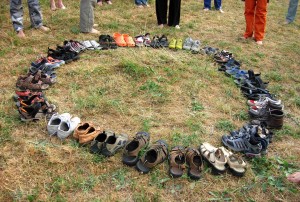 If you are grieving from a divorce after a tumultuous marriage, it may be difficult for family and friends to understand your grief. Comments of “you are better off” or “we never liked them anyway” are frequently heard, and the lack of support can complicate the healing process. Normally we rely on our friends and family as a key support system through divorce, they listen, share stories, and provide support in so many ways, however, when friends and family choose to bash the ex, the pain and grief over the marriage doesn’t feel validated. It’s makes a person feel like they shouldn’t be hurting, it has them questioning their feelings, and quite often like they need to hide their feelings from their loved ones.
It can be challenging for people on the outside to understand how highly conflicted relationships can be difficult to move on from. It’s hard for them to get past the “you’re better off” stage, when in fact the divorcee is likely not only grieving the loss of their marriage, but grieving what could have been, wishing things would have been different, or perhaps regretting particular conflicts.
It is important not to let unsupportive family or friends invalidate feelings of anguish after divorce. Perhaps they do not fully understand your relationship, or haven’t stopped to consider that you are still heartbroken regardless of the circumstances of the marriage. You may need to confront an unsupportive family member or friend to remind them that their lack of support, however it is intentioned, is not helping you to heal. Be open to them about the type of support that you do need.
Recognize that different people may support you in different ways. Your best friend may be an excellent listener and a good shoulder to cry on, while your sister is better suited to help you get your finances or belongings in order. It’s important to remember this about people in order to have realistic expectations. If you are having a particularly down day, call someone who will support your feelings, not someone who thinks this is an opportunity to commence the ex-bashing. Keep an open mind though, the best support may come from someone you’d least expect.
Finally, realize that friends and family simply cannot offer all of the support that you may need. Counseling and divorce support groups are excellent resources. In a group setting you will find others experiencing similar feelings and yours may be validated. Together you can cope, heal, and grow from your divorce. There’s a quote from an unnamed father that reads, “One of the hardest things you will ever do, my dear, is grieve the loss of someone who is still alive.” We tend to agree.
If you are grieving from a divorce after a tumultuous marriage, it may be difficult for family and friends to understand your grief. Comments of “you are better off” or “we never liked them anyway” are frequently heard, and the lack of support can complicate the healing process. Normally we rely on our friends and family as a key support system through divorce, they listen, share stories, and provide support in so many ways, however, when friends and family choose to bash the ex, the pain and grief over the marriage doesn’t feel validated. It’s makes a person feel like they shouldn’t be hurting, it has them questioning their feelings, and quite often like they need to hide their feelings from their loved ones.
It can be challenging for people on the outside to understand how highly conflicted relationships can be difficult to move on from. It’s hard for them to get past the “you’re better off” stage, when in fact the divorcee is likely not only grieving the loss of their marriage, but grieving what could have been, wishing things would have been different, or perhaps regretting particular conflicts.
It is important not to let unsupportive family or friends invalidate feelings of anguish after divorce. Perhaps they do not fully understand your relationship, or haven’t stopped to consider that you are still heartbroken regardless of the circumstances of the marriage. You may need to confront an unsupportive family member or friend to remind them that their lack of support, however it is intentioned, is not helping you to heal. Be open to them about the type of support that you do need.
Recognize that different people may support you in different ways. Your best friend may be an excellent listener and a good shoulder to cry on, while your sister is better suited to help you get your finances or belongings in order. It’s important to remember this about people in order to have realistic expectations. If you are having a particularly down day, call someone who will support your feelings, not someone who thinks this is an opportunity to commence the ex-bashing. Keep an open mind though, the best support may come from someone you’d least expect.
Finally, realize that friends and family simply cannot offer all of the support that you may need. Counseling and divorce support groups are excellent resources. In a group setting you will find others experiencing similar feelings and yours may be validated. Together you can cope, heal, and grow from your divorce. There’s a quote from an unnamed father that reads, “One of the hardest things you will ever do, my dear, is grieve the loss of someone who is still alive.” We tend to agree.
Zooming into a Stress-Free Divorce: How Zoom Meetings Offer Comfort and Convenience
In recent years, how we handle many of life’s pivotal moments, including the sensitive divorce process, has shifted dramatically. The introduction of tools like Zoom into the collaborative divorce process has transformed how meetings are conducted and brought...



